Welcome New Faculty!
Eighteen instructional, clinical, and tenure-track faculty are joining the College of Natural Sciences & Mathematics. Please welcome our new colleagues.
Department of Biology & Biochemistry
Wangchao Xu, Assistant Professor
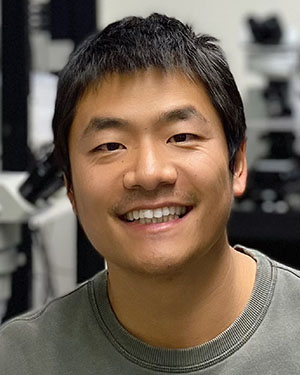 The nervous and immune systems are two of the most complex systems in the body. Intriguingly, they crosstalk with each other. To unravel this intricate and conserved neuroimmune interaction, Dr. Xu’s lab will use Drosophila and employ multidisciplinary approaches to address a fundamental question in neuroimmunology: how do the brain and immune system collaborate to combat infection?
The nervous and immune systems are two of the most complex systems in the body. Intriguingly, they crosstalk with each other. To unravel this intricate and conserved neuroimmune interaction, Dr. Xu’s lab will use Drosophila and employ multidisciplinary approaches to address a fundamental question in neuroimmunology: how do the brain and immune system collaborate to combat infection?
Department of Chemistry
Yeongsu Cho, Assistant Professor
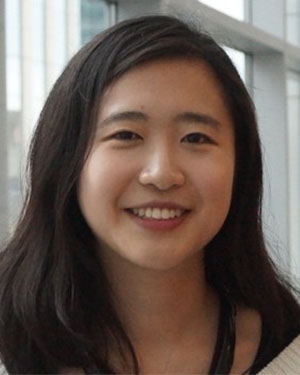 Dr. Cho’s research focuses on developing efficient methods for simulating the optoelectronic properties of light-harvesting materials to transform solar energy into a low-cost power source. Traditional quantum chemistry methods are often too computationally demanding, prompting us to integrate machine learning with quantum chemistry to reduce computational costs and improve simulations. By advancing semiempirical quantum chemistry methods, her group aims to gain deeper insights into material behavior and facilitate the discovery of novel functional materials.
Dr. Cho’s research focuses on developing efficient methods for simulating the optoelectronic properties of light-harvesting materials to transform solar energy into a low-cost power source. Traditional quantum chemistry methods are often too computationally demanding, prompting us to integrate machine learning with quantum chemistry to reduce computational costs and improve simulations. By advancing semiempirical quantum chemistry methods, her group aims to gain deeper insights into material behavior and facilitate the discovery of novel functional materials.
Reggie Mills, Assistant Professor
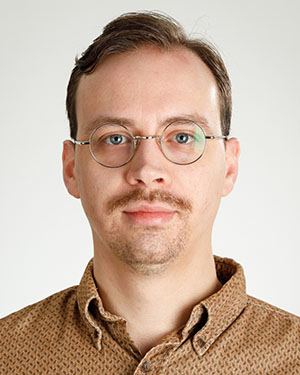 Dr. Mills is interested in the use of synthetic chemistry and catalysis to solve real-world problems in affordable medicine, energy, and electronics. His research employs a mechanism-guided approach to developing transition metal catalysts located on the first row of the periodic table, with the primary focus on discovering methodologies that establish new and unexplored ways to make and break bonds in organic molecules.
Dr. Mills is interested in the use of synthetic chemistry and catalysis to solve real-world problems in affordable medicine, energy, and electronics. His research employs a mechanism-guided approach to developing transition metal catalysts located on the first row of the periodic table, with the primary focus on discovering methodologies that establish new and unexplored ways to make and break bonds in organic molecules.
Department of Computer Science
Jinyang Liu, Assistant Professor
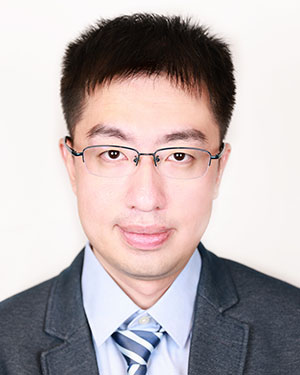 Dr. Liu’s major research field is scientific data lossy compression, including traditional methods and deep-learning-based methods. He has developed several scientific data error-bounded lossy compressors which have been applied by scientific data users in national labs and companies. He also has research interests and experiences broadly in the areas of high-performance computing, large-scale scientific data management and reduction, and deep learning (in HPC applications).
Dr. Liu’s major research field is scientific data lossy compression, including traditional methods and deep-learning-based methods. He has developed several scientific data error-bounded lossy compressors which have been applied by scientific data users in national labs and companies. He also has research interests and experiences broadly in the areas of high-performance computing, large-scale scientific data management and reduction, and deep learning (in HPC applications).
Jingchao Ni, Assistant Professor
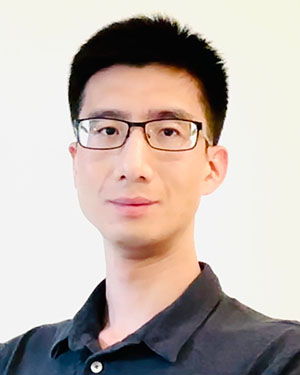 Dr. Ni’s research is centered around machine learning, data science, and artificial intelligence, with a focus on the development of robust and adaptable machine learning models in data-constrained scenarios, for reliable inference in environments and tasks that are subject to change. His recent research revolves around AI/ML methods and multimodal LLMs for time-varying data and graph-structured data and their extension to areas emphasizing AI for science (e.g., biomedicine, neuroscience) and AI for social good (e.g., healthcare, cyber-physical systems, AIOps).
Dr. Ni’s research is centered around machine learning, data science, and artificial intelligence, with a focus on the development of robust and adaptable machine learning models in data-constrained scenarios, for reliable inference in environments and tasks that are subject to change. His recent research revolves around AI/ML methods and multimodal LLMs for time-varying data and graph-structured data and their extension to areas emphasizing AI for science (e.g., biomedicine, neuroscience) and AI for social good (e.g., healthcare, cyber-physical systems, AIOps).
Jianyi Yang, Assistant Professor
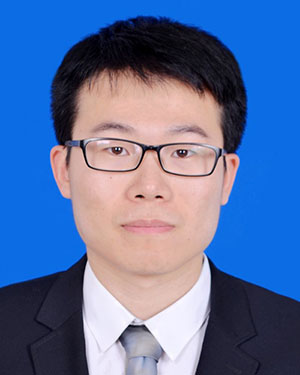 Dr. Yang’s research aims to advance trustworthy and efficient AI, building reliable, responsible, and sustainable AI systems. The methodologies in his research include reinforcement learning, online learning/optimization, knowledge informed learning, learning-augmented algorithms, etc. In addition, his work develops domain knowledge-informed AI solutions for computing systems and other applications.
Dr. Yang’s research aims to advance trustworthy and efficient AI, building reliable, responsible, and sustainable AI systems. The methodologies in his research include reinforcement learning, online learning/optimization, knowledge informed learning, learning-augmented algorithms, etc. In addition, his work develops domain knowledge-informed AI solutions for computing systems and other applications.
Chengming Zhang, Assistant Professor
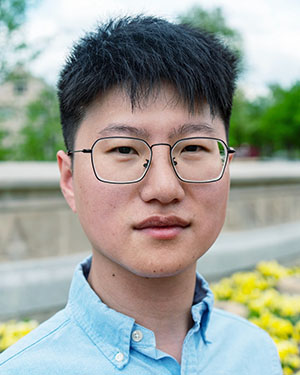 Dr. Zhang’s research focuses on machine learning systems. Areas of interest include efficient training/inference on parallel/distributed/heterogeneous hardware; AI algorithm-hardware co-design; and large-scale DL/AI applications (Large Language Model, Agent, Image/Video Generation, DLRM, etc.). He received his Ph.D. from Indiana University.
Dr. Zhang’s research focuses on machine learning systems. Areas of interest include efficient training/inference on parallel/distributed/heterogeneous hardware; AI algorithm-hardware co-design; and large-scale DL/AI applications (Large Language Model, Agent, Image/Video Generation, DLRM, etc.). He received his Ph.D. from Indiana University.
Department of Earth & Atmospheric Sciences
Jiaxuan Li, Assistant Professor
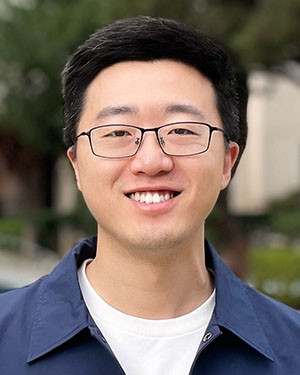 Dr. Li’s research uses fiber-optic technologies to study seismic activities and image subsurface structures in diverse environments, including crustal, volcanic, and glacial settings. His recent study demonstrates the use of low-frequency distributed acoustic sensing as dense geodetic sensors to achieve high-resolution imaging of magma migration within magmatic plumbing systems. This research paves the way for the emerging fiber-optic geodesy, showing great potential for future research and applications.
Dr. Li’s research uses fiber-optic technologies to study seismic activities and image subsurface structures in diverse environments, including crustal, volcanic, and glacial settings. His recent study demonstrates the use of low-frequency distributed acoustic sensing as dense geodetic sensors to achieve high-resolution imaging of magma migration within magmatic plumbing systems. This research paves the way for the emerging fiber-optic geodesy, showing great potential for future research and applications.
Will Struble, Assistant Professor
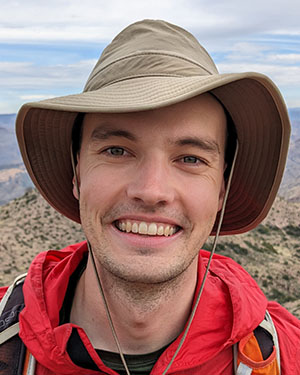 Dr. Struble utilizes topographic analysis, remote sensing, numerical modelling, and field methods to interpret how surface processes on Earth (and other planets) encode tectonic, climatic, biologic, and anthropogenic processes into the morphology of landscapes. His research emphasizes hillslope and steepland processes, including parsing earthquake and hydrologic contributions to landslide triggering, quantifying how debris flows drive landscape evolution, and decoding landscape morphology for expected coastal subsidence during future megathrust earthquakes.
Dr. Struble utilizes topographic analysis, remote sensing, numerical modelling, and field methods to interpret how surface processes on Earth (and other planets) encode tectonic, climatic, biologic, and anthropogenic processes into the morphology of landscapes. His research emphasizes hillslope and steepland processes, including parsing earthquake and hydrologic contributions to landslide triggering, quantifying how debris flows drive landscape evolution, and decoding landscape morphology for expected coastal subsidence during future megathrust earthquakes.
Department of Mathematics
Ping Zhong, Associate Professor
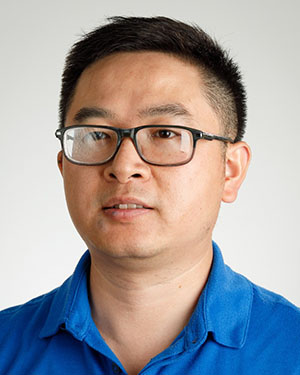 Dr. Zhong works on interfaces between free probability theory, random matrix theory, and operator algebras. His research interests also extend to applications in various fields, including quantum information theory, combinatorics, and high-dimensional statistics. He recently received an NSF CAREER Award to support his research program on free probability and non-Hermitian random matrix theory. Before joining UH, he was an assistant professor at the University of Wyoming.
Dr. Zhong works on interfaces between free probability theory, random matrix theory, and operator algebras. His research interests also extend to applications in various fields, including quantum information theory, combinatorics, and high-dimensional statistics. He recently received an NSF CAREER Award to support his research program on free probability and non-Hermitian random matrix theory. Before joining UH, he was an assistant professor at the University of Wyoming.
Chris Lutsko, Assistant Professor
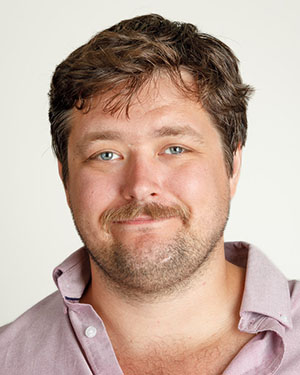 Broadly speaking, Dr. Lutsko is interested in the interplay between number theory, dynamics, mathematical physics, and probability. One of the more specific questions he’s looked at is that of equidistribution. That is, understanding how deterministic classes of mathematical objects can spread out, and when considering more and more of these objects, start to exhibit random behavior.
Broadly speaking, Dr. Lutsko is interested in the interplay between number theory, dynamics, mathematical physics, and probability. One of the more specific questions he’s looked at is that of equidistribution. That is, understanding how deterministic classes of mathematical objects can spread out, and when considering more and more of these objects, start to exhibit random behavior.
Charles Puelz, Assistant Professor
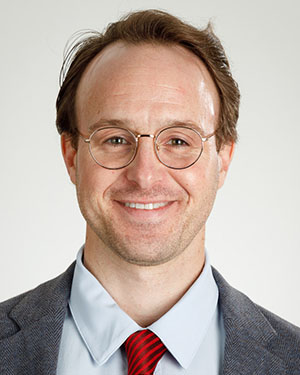 Dr. Puelz is interested in the development of mathematical models and numerical methods for computer modeling in medicine, especially cardiac physiology. His specific technical interests include finite element methods, fluid-structure interaction, and image-processing methods. Recent projects and applications of his work include plasma exchange, congenital heart disease, and human fetal circulation.
Dr. Puelz is interested in the development of mathematical models and numerical methods for computer modeling in medicine, especially cardiac physiology. His specific technical interests include finite element methods, fluid-structure interaction, and image-processing methods. Recent projects and applications of his work include plasma exchange, congenital heart disease, and human fetal circulation.
Ming Zhong, Assistant Professor
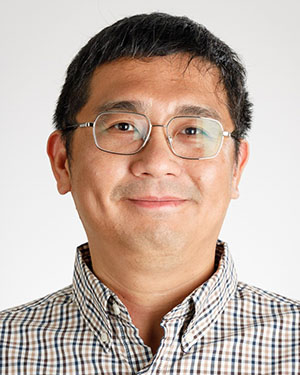 Dr. Zhong’s research focuses on making scientific discoveries from observation data. His research has two major directions, one is using machine learning to understand collective behaviors (such as clustering, flocking, swarming, and synchronization) from data, and the other is using scientific machine learning to build PDE models from fluid mechanics, material sciences, and social sciences. He recently received the Ralph E. Powe Junior Faculty Enhancement Award from Oak Ridge Associated Universities for FY 2024 for his research on developing new mathematical models for explaining anti-social behaviors.
Dr. Zhong’s research focuses on making scientific discoveries from observation data. His research has two major directions, one is using machine learning to understand collective behaviors (such as clustering, flocking, swarming, and synchronization) from data, and the other is using scientific machine learning to build PDE models from fluid mechanics, material sciences, and social sciences. He recently received the Ralph E. Powe Junior Faculty Enhancement Award from Oak Ridge Associated Universities for FY 2024 for his research on developing new mathematical models for explaining anti-social behaviors.
Transition from Lecturer to Instructional Faculty
Jennifer May, Instructional Assistant Professor
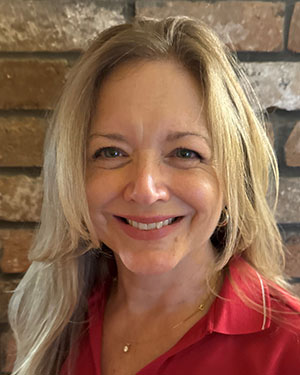 Dr. May’s graduate research questions revolve around signal recovery on graphs. Though her Ph.D. is in mathematics, her true passion lies in working with students. She is excited to give back to the UH community in her new role, focusing on engaging and supporting students in their academic journey.
Dr. May’s graduate research questions revolve around signal recovery on graphs. Though her Ph.D. is in mathematics, her true passion lies in working with students. She is excited to give back to the UH community in her new role, focusing on engaging and supporting students in their academic journey.
Transition from Postdoctoral Fellow to Clinical Faculty
Karen McIntush, Clinical Assistant Professor - teachHOUSTON/Mathematics
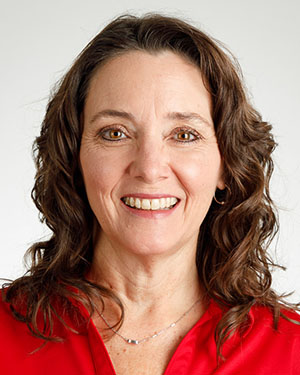 Dr. Karen McIntush is a faculty advisor with teachHOUSTON. She received her Ph.D. in Curriculum and Instruction from Texas A&M University and has over 20 years of experience teaching and researching in higher education. She manages various NSF grants and conducts research on teachHOUSTON programs with a specific interest in culturally responsive classroom management, teacher residencies, and STEM teacher preparation pathways.
Dr. Karen McIntush is a faculty advisor with teachHOUSTON. She received her Ph.D. in Curriculum and Instruction from Texas A&M University and has over 20 years of experience teaching and researching in higher education. She manages various NSF grants and conducts research on teachHOUSTON programs with a specific interest in culturally responsive classroom management, teacher residencies, and STEM teacher preparation pathways.
Department of Physics
Liangzi Deng, Assistant Professor
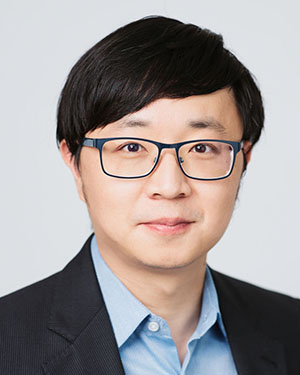 Dr. Deng’s main research interests are searching for novel superconductors and topological materials; enhancing superconducting critical transition temperatures; unraveling the underlying mechanism and developing the practical use of high-temperature superconductivity; retaining metastable phases with favorable properties at ambient pressure; investigating strongly correlated systems with multi-interactions; and designing revolutionary tools to accelerate discovery and technological deployment of quantum materials.
Dr. Deng’s main research interests are searching for novel superconductors and topological materials; enhancing superconducting critical transition temperatures; unraveling the underlying mechanism and developing the practical use of high-temperature superconductivity; retaining metastable phases with favorable properties at ambient pressure; investigating strongly correlated systems with multi-interactions; and designing revolutionary tools to accelerate discovery and technological deployment of quantum materials.
Wenqing Fan, Assistant Professor
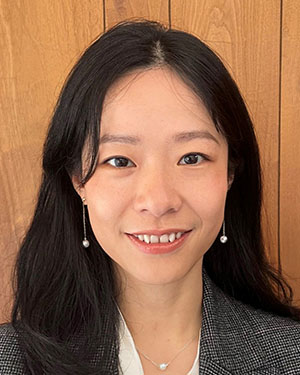 Dr. Fan’s research focuses on understanding the fundamental building blocks of matter - quarks and gluons. She studies how these particles behave both when confined within everyday matter and when freed in extreme conditions, forming a state called quark-gluon plasma. Using advanced experiments at particle colliders, she investigates how quarks and gluons interact and transform, aiming to deepen our understanding of the universe’s basic structure and the forces that govern it.
Dr. Fan’s research focuses on understanding the fundamental building blocks of matter - quarks and gluons. She studies how these particles behave both when confined within everyday matter and when freed in extreme conditions, forming a state called quark-gluon plasma. Using advanced experiments at particle colliders, she investigates how quarks and gluons interact and transform, aiming to deepen our understanding of the universe’s basic structure and the forces that govern it.
Michal Papaj, Assistant Professor
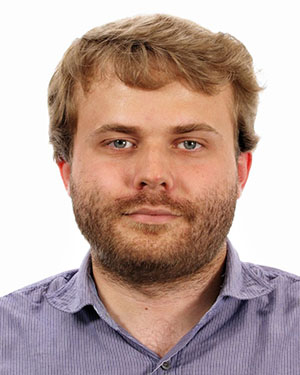 Dr. Papaj is a theoretical physicist who studies quantum materials to explain their electrical conductivity, magnetic properties, and how they interact with light. He focuses on superconductors and topological two-dimensional materials, which promise extraordinary applications in a new generation of quantum technologies. In his research, he always strives to closely collaborate with experimentalists, who convert his theoretical models into real-world devices.
Dr. Papaj is a theoretical physicist who studies quantum materials to explain their electrical conductivity, magnetic properties, and how they interact with light. He focuses on superconductors and topological two-dimensional materials, which promise extraordinary applications in a new generation of quantum technologies. In his research, he always strives to closely collaborate with experimentalists, who convert his theoretical models into real-world devices.
